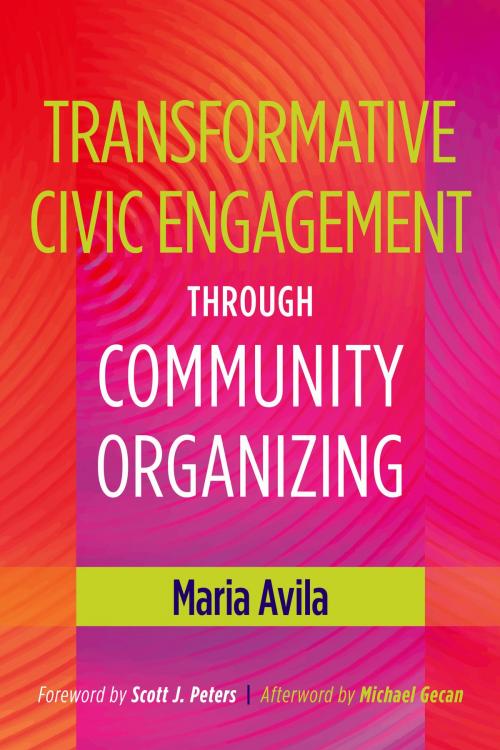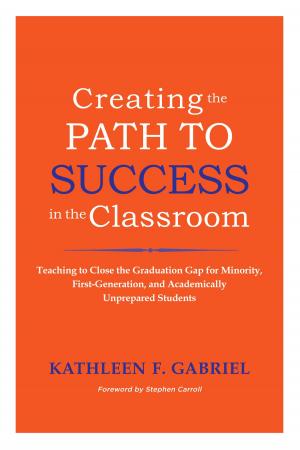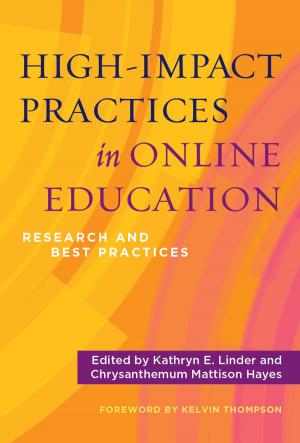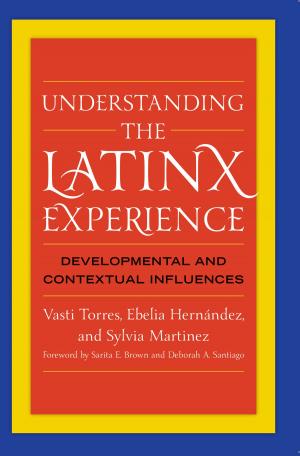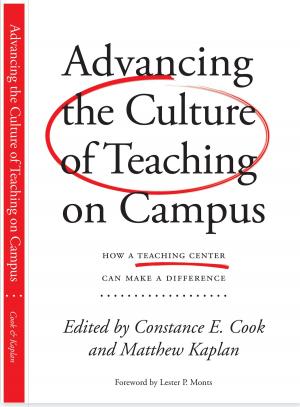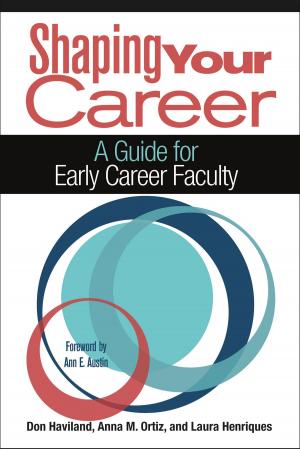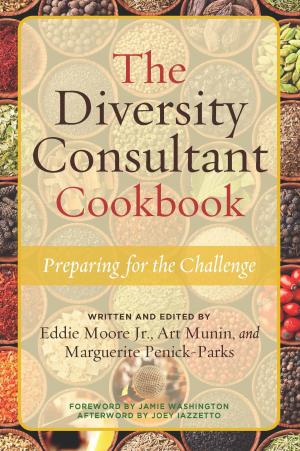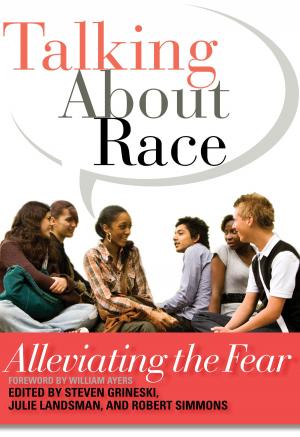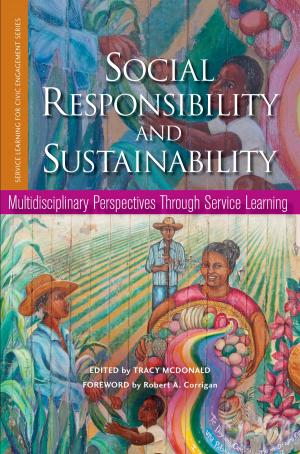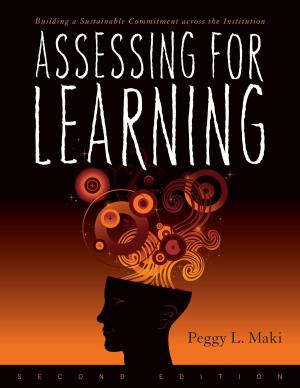Transformative Civic Engagement Through Community Organizing
Nonfiction, Reference & Language, Education & Teaching, Higher Education| Author: | Michael Gecan, Maria Avila | ISBN: | 9781620361061 |
| Publisher: | Stylus Publishing | Publication: | November 30, 2017 |
| Imprint: | Stylus Publishing | Language: | English |
| Author: | Michael Gecan, Maria Avila |
| ISBN: | 9781620361061 |
| Publisher: | Stylus Publishing |
| Publication: | November 30, 2017 |
| Imprint: | Stylus Publishing |
| Language: | English |
Maria Avila presents a personal account of how, from her experience as a teenager working in a factory in Ciudad Juarez, she got involved in community organizing and how she has since applied its distinctive practices to civic engagement in higher education. Her premise is that community organizing can help create a culture that values and rewards civically engaged scholarship and thus advance higher education’s public, democratic mission.
Adapting what she learned during her years as an organizer with the Industrial Areas Foundation, she describes a practice that aims for full reciprocity between partners and is achieved through the careful nurturing of relationships, a mutual understanding of personal narratives, leadership building, power analysis, and critical reflection. She demonstrates how she implemented the process in various institutions and in various contexts and shares lessons learned.
Community organizing recognizes the need to understand the world as it is in order to create spaces where stakeholders can dialogue and deliberate about strategies for creating the world as we would like it to be. Maria Avila offers a vision and process that can lead to creating institutional change in higher education, in communities surrounding colleges and universities, and in society at large.
This book is a narrative of her personal and professional journey and of how she has gone about co-creating spaces where democracy can be enacted and individual, institutional, and community transformation can occur. In inviting us to experience the process of organizing, and in keeping with its values and spirit, she includes the voices of the participants in the initiatives in which she collaborated – stakeholders ranging from community partners to faculty, students, and administrators in higher education.
Adapting what she learned during her years as an organizer with the Industrial Areas Foundation, she describes a practice that aims for full reciprocity between partners and is achieved through the careful nurturing of relationships, a mutual understanding of personal narratives, leadership building, power analysis, and critical reflection. She demonstrates how she implemented the process in various institutions and in various contexts and shares lessons learned.
Community organizing recognizes the need to understand the world as it is in order to create spaces where stakeholders can dialogue and deliberate about strategies for creating the world as we would like it to be. Maria Avila offers a vision and process that can lead to creating institutional change in higher education, in communities surrounding colleges and universities, and in society at large.
This book is a narrative of her personal and professional journey and of how she has gone about co-creating spaces where democracy can be enacted and individual, institutional, and community transformation can occur. In inviting us to experience the process of organizing, and in keeping with its values and spirit, she includes the voices of the participants in the initiatives in which she collaborated – stakeholders ranging from community partners to faculty, students, and administrators in higher education.
Maria Avila presents a personal account of how, from her experience as a teenager working in a factory in Ciudad Juarez, she got involved in community organizing and how she has since applied its distinctive practices to civic engagement in higher education. Her premise is that community organizing can help create a culture that values and rewards civically engaged scholarship and thus advance higher education’s public, democratic mission.
Adapting what she learned during her years as an organizer with the Industrial Areas Foundation, she describes a practice that aims for full reciprocity between partners and is achieved through the careful nurturing of relationships, a mutual understanding of personal narratives, leadership building, power analysis, and critical reflection. She demonstrates how she implemented the process in various institutions and in various contexts and shares lessons learned.
Community organizing recognizes the need to understand the world as it is in order to create spaces where stakeholders can dialogue and deliberate about strategies for creating the world as we would like it to be. Maria Avila offers a vision and process that can lead to creating institutional change in higher education, in communities surrounding colleges and universities, and in society at large.
This book is a narrative of her personal and professional journey and of how she has gone about co-creating spaces where democracy can be enacted and individual, institutional, and community transformation can occur. In inviting us to experience the process of organizing, and in keeping with its values and spirit, she includes the voices of the participants in the initiatives in which she collaborated – stakeholders ranging from community partners to faculty, students, and administrators in higher education.
Adapting what she learned during her years as an organizer with the Industrial Areas Foundation, she describes a practice that aims for full reciprocity between partners and is achieved through the careful nurturing of relationships, a mutual understanding of personal narratives, leadership building, power analysis, and critical reflection. She demonstrates how she implemented the process in various institutions and in various contexts and shares lessons learned.
Community organizing recognizes the need to understand the world as it is in order to create spaces where stakeholders can dialogue and deliberate about strategies for creating the world as we would like it to be. Maria Avila offers a vision and process that can lead to creating institutional change in higher education, in communities surrounding colleges and universities, and in society at large.
This book is a narrative of her personal and professional journey and of how she has gone about co-creating spaces where democracy can be enacted and individual, institutional, and community transformation can occur. In inviting us to experience the process of organizing, and in keeping with its values and spirit, she includes the voices of the participants in the initiatives in which she collaborated – stakeholders ranging from community partners to faculty, students, and administrators in higher education.
